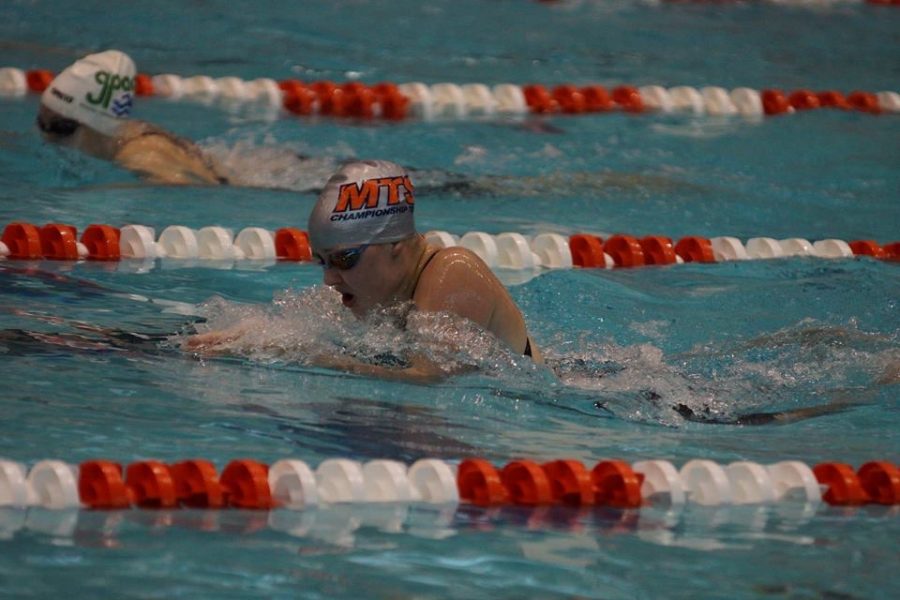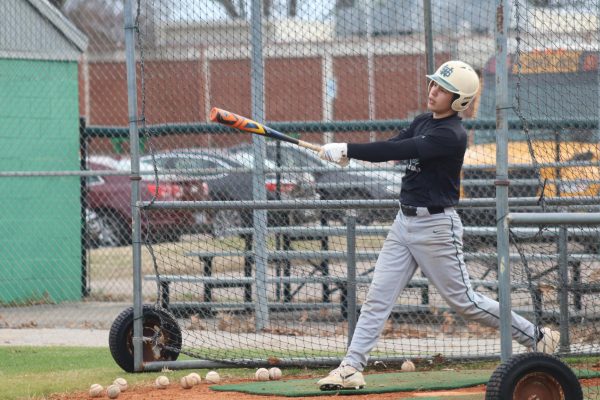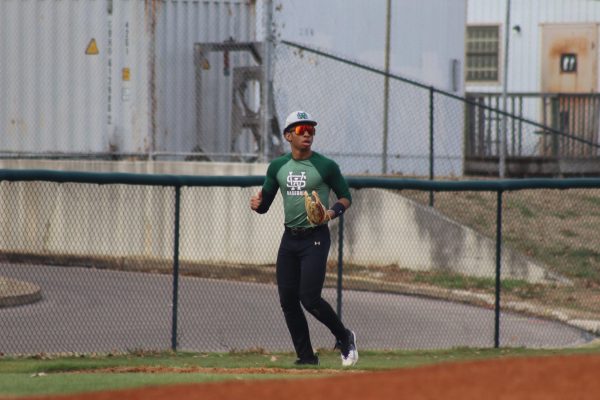Spartan swimmers race for greatness
Paxton Smythe (12) swims in the 100 meter breaststroke event at Southeasterns in Knoxville, Tenn. Alongside racing on behalf of the White Station Swim Team, Smythe competes individually in many meets across Tenn. and the nation to gain experience and recognition.
From Olympian Michael Phelps on a world stage to beginners in a community pool, swimming captures the attention of people on a large range of skill levels. The White Station High swim team is where committed athletes and beginner swimmers compete alongside each other in events designed to test endurance, speed and athleticism in the water.
Paxton Smythe (12) resides on the experienced end of the swim team and has been swimming since her youth. Memphis Tigers is a club team where swimmers practice five to six days a week, allowing Smythe to practice and compete even outside of school swim season.
“I started swimming when I was 6,” Smythe said. “I originally started with summer league. I swam summer league for Rhodes, and one of the families told my brother and I … we should join the Memphis Tigers. So I’ve been swimming completely with Memphis Tigers YMCA Swimming for the past 10 years.”
Unlike Smythe, Alexandra Shirley (11) learned how to swim only three months ago, joining the team as a way to stay fit for cross country while healing an injury. Regardless of a steep learning curve for beginners at an older age, Shirley has grown to love the challenge that swimming presents .
“I’m mainly a runner, and my goal this year for cross country was to get to state,” Shirley said. “But I’ve been injured all season, so I wanted to start swimming to get into a different sport while I was doing physical therapy. Swimming is hard, but I’m having a lot of fun.”
As a runner, Shirley has experienced many misconceptions surrounding swimming through other athletes. These misconceptions label swimming as an easy, relaxed sport in comparison to more highly followed sports.
“In the running community … there’s kind of a misconception that swimming is the ‘recovery exercise,’” Shirley said. “You swim if you can’t run, like swimming is secondary to running, and I don’t think a lot of runners realize how hard swimming really is. My brother and my sister [never believe me] when I tell them how hard practice is because they always think nothing can be harder than running.”
Practicing for about 20 hours a week, Smythe must dedicate an immense amount of time to the sport as well as balancing homework and other activities.
“At the level I’m at, there [are] definitely some mental challenges that come with swimming,” Smythe said. “It could be staying motivated to work your hardest everyday or being tough enough to push through an extremely difficult practice and coming back day after day to put your body through it again.”
Despite the challenges, Smythe diligently continued with swimming throughout highschool, earning a commitment to Rhodes College to continue her academic and swimming career.
“When I started swimming, I definitely did not think I would be swimming in college,” Smythe said. “It wasn’t until around when I was 13 or 14 when I realized that I actually wanted to continue to swim. I’m not sure what I would do if I didn’t swim.”
There are many other opportunities besides a collegiate track in which swimmers can utilize their skills developed on the team. Shirley plans to use her new swimming skills and existing running and biking abilities to begin competing in triathlons.
“Now that I know how to swim, I can start signing up for triathlons,” Shirley said. “I’m thinking of signing up for a sprint triathlon next year, so my goal would be to swim longer distances without stopping so that I could actually do it in a triathlon.”
Similar to Shirley, Ira Sharma (10) is a multi-sport athlete who swims for cross-training. Sharma has been swimming for five years and adjusts her swimming schedule to reflect which sport is in season.
“I run track as well, and I think swimming is really good for your legs,” Sharma said. “My legs are a lot stronger from swimming, and it gives you a pain tolerance with your lungs because there will be times where [in practice] you just don’t breathe and wait until the next lap. So in terms of track, it just helps me get in shape and is sometimes more fun than going for a run like if it’s super cold.”
Swimming is often overlooked compared to other high school sports. Swimming does not rally a crowd like other highschool sports, but recognition for the team can happen by a better understanding from the public.
“Because of the nature of swim meets, it’s not much of a spectator sport like football or basketball,” Smythe said. “… I would say it’s not as much of a mainstream sport; however, we practice just as hard and maybe even more than other sports.”
To bridge the gap between swimming and the general public, Sharma encourages others to try their hand at the swim team or attend small events to learn more about the sport. Cases like Shirley’s demonstrate that no matter the skill level, the White Station Swim Team can be a valuable opportunity for existing athletes or anyone that has an interest in the sport.
“If you’re interested in swimming, just come to the team,” Sharma said. “The school meets are a lot smaller than club meets, so if you want to start swimming or just experience it, it’s really fun to just go to a meet. It’s small; it’s relaxing, and you can get an introduction to it.”
Your donation will support the student journalists of White Station High School. Your contribution will allow us to purchase equipment and cover our annual website hosting costs.






































